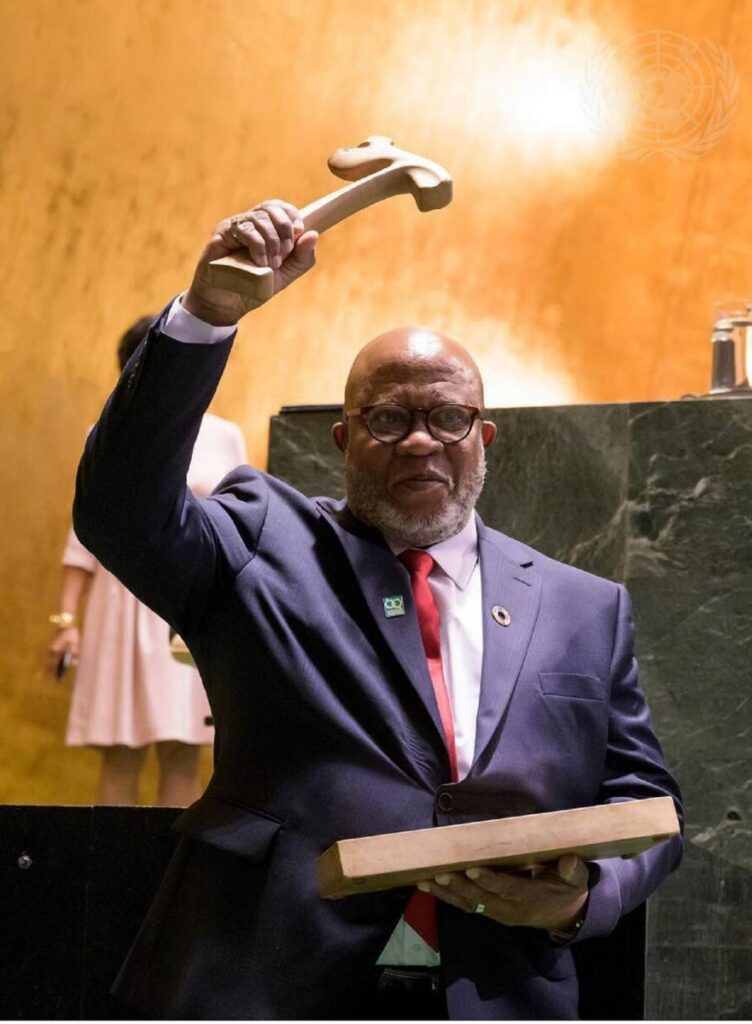Francis: UN must act in times of crisis

UN General Assembly (UNGA) president Dennis Francis has said standing still during times of crisis is not an option for the UN.
He expressed this opinion during a plenary meeting of the assembly on the question of equitable representation, an increase in the membership of the UN Security Council and other matters related to the council.
Francis, who is TT's ambassador to the UN, was elected UNGA president on June 1.
He reminded delegates that the issue of equitable representation dated back to 1979.
"Since then, not much has changed, in re-adapting the institution to better reflect current realities."
Francis said it should not be a surprise to anyone that there has been a steady growth in the calls from member states to address this matter.
"In recent weeks, these calls have been forcefully articulated by the numerous groups and individual member states that I have met, advocating for meaningful progress – despite the variable positions which we all know."
Referring to the Russia-Ukraine and Israel-Gaza conflicts, Francis called on member states to consider the task before them.
"Violence and war continue to spread in regions across the world, while the UN seems paralysed due largely to the divisions in the Security Council."
Francis admitted that while some of today's challenges could not have been envisioned eight decades ago, "Those that we did foresee are blazing onto the geopolitical landscape – with new and deeply worrying ferocity.
"Amid this sea-change, the council is dangerously falling short of its mandate as the primary custodian for the maintenance of international peace and security."
Francis warned that in situations such as this, "Stasis can be as formidable a foe as chaos."
He also warned that without the proper reform, the UN's credibility and relevance could be weakened to a point that will lead inevitably to its termination.
"Given the stakes, we will however, need fresh, innovative thinking on reform pathways."
Francis suggested that the Summit of the Future next September provided such an opportunity.
"In preparation for that ground-breaking event, we must work purposively to ensure that world leaders are provided with the opportunity to advance key debates and to bring multilateral institutions and frameworks into alignment with the dictates and circumstances of today’s world."
Against this background Francis urged member states to "break through ingrained positions, and to promote security-council reform through practical steps that support effectiveness and moreover, represent the full diversity of geographies."
With the eyes of the world fixed on the UN more now than ever, Francis said, "A posture of procrastination will only feed perceptions that our structures are antiquated and irrelevant and therefore, structurally incapable of delivering outcomes that protect and/or bolster international peace and security."
He was confident that UN member states can "move the dial on our efforts to create a Security Council that is more representative of and better equipped to effectively serve the modern age."
UN Security Council
THE UN Security Council has 15 members, five permanent and ten non-permanent.
The five permanent members are China, France, Russia, the UK and the US.
All these countries have veto power.
The ten non-permanent members are elected to serve on the council for two-year terms.
The current non-permanent members are Brazil, Albania, Ecuador, Gabon, Ghana, Japan, Malta, Mozambique, Switzerland and the United Arab Emirates.


Comments
"Francis: UN must act in times of crisis"